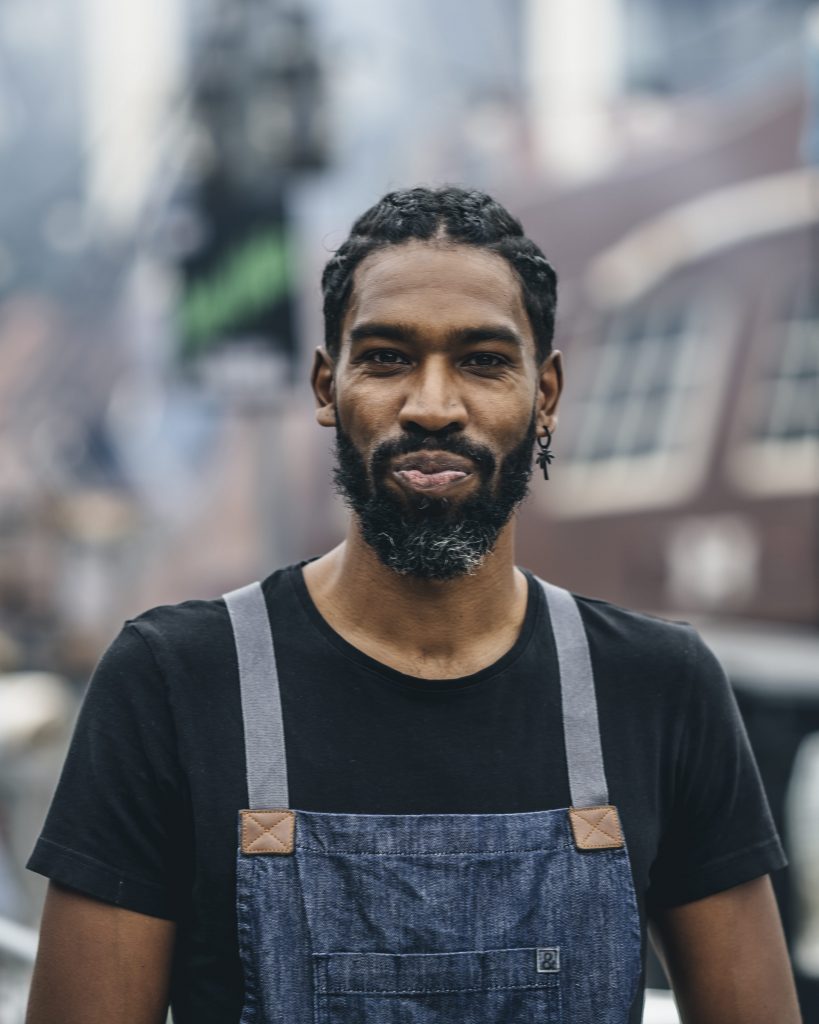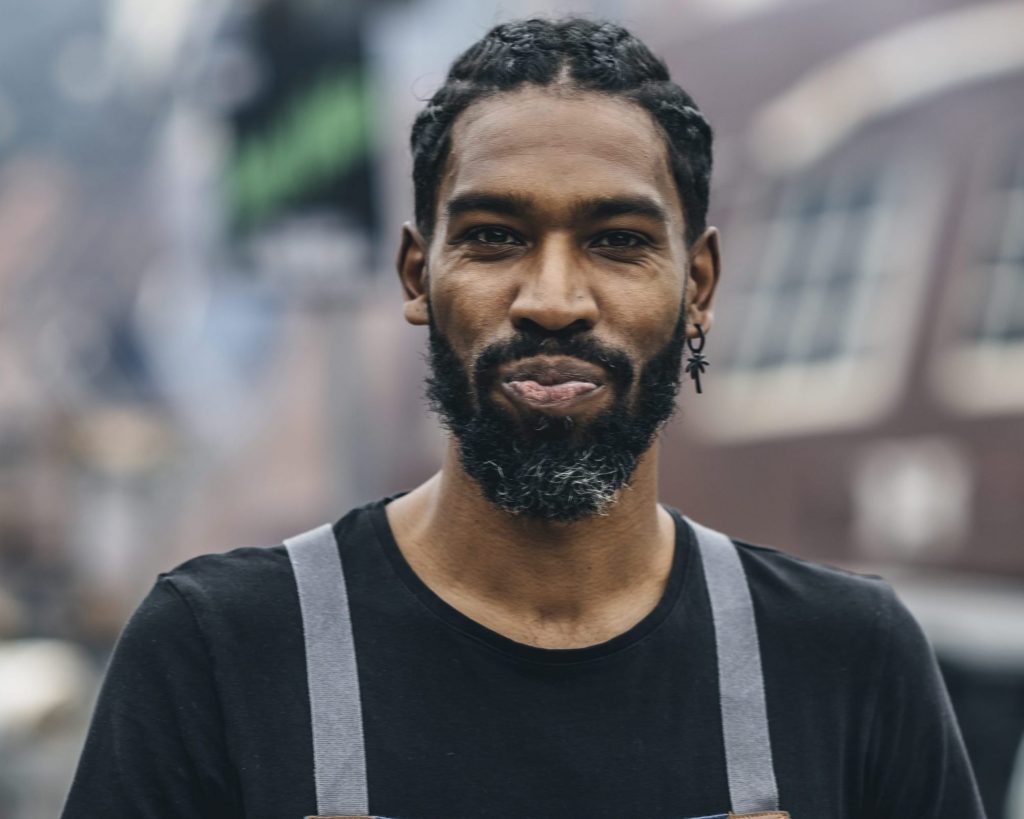‘Buying and Growing Food Sustainably’: Q&A With Liam Barker
Chef Liam Barker started his cooking career at Michelin star restaurant Corrigan’s Mayfair, which he gives credit for a lot of his skill and knowledge of cooking. Over the last 15 years, he’s taught cooking classes, cooked at pop-ups and food festivals, and travelled the world. More recently, Liam has taken his teachings online with his personal brand ‘Chef Liam’, where his alter-ego gives us the food education we didn’t know that we needed, but definitely did.
Ahead of Liam’s workshop with us on Tuesday 19th of April at 6pm, we met with Liam to talk about food production, sustainability and maximising your ingredients. At the workshop, Liam will also share knowledge that he’s gained from his experience growing food at home. Liam will help us to think more consciously about the food we’re buying and the way we’re preparing it, to help us eat in a way that is kind to the body as well as the planet.
Tell me a bit about yourself, your background and career as a chef?
I wanted to be a chef at 22 and had no training. So I wrote a letter to all the Michelin star restaurants in London asking for a trial. At the time Bentleys Oyster Bar & Kitchen had a star and Richard Corrigan had just opened Corrigan’s Mayfair. The head chef invited me for a trial where I did a double shift and they put me straight into pastry for service. At the end of the day they offered me a job on the spot. I had learnt all my cooking from home and on TV. The great thing about that type of kitchen environment is that everything is done from scratch, nothing gets bought in -only the cheese. The way I learned to work was from that high standard, it was my baseline for working in a kitchen, it’s all I knew. Every morning, my first job was to make and bake the multiple breads we served in the restaurant from the day. I learnt pastry skills, tempering, making pastry, souffles, working with chocolate and much more. I learned so much during my time but nothing can prepare you for the work life balance of doing double shifts everyday, 5 days a week. Work didn’t feel like work, but after sometime the work life balance really started to take its toll. I barely saw my family or my girlfriend for months, so I decided after 1 year to leave the kitchen at Corrigan’s Mayfair to pursue a more balanced lifestyle.

Why did you embark upon the journey of buying and growing sustainably?
Food production contributes to around one third of all greenhouse gases, which is having an effect on our climate and circles back to create problems for farmers. I feel like we’re more out of tune with where our food comes from than ever. We’re heading more and more towards placing our trust for our food supplies in commercial food factories. In that food, most of the time, we have no idea what we’re eating. No idea of the quality or standards of the meat used in them either. So not only is this bad for the environment, it’s bad for our bodies. It’s no wonder we are sicker than ever. If we understand the processes that go into growing food and how we get it we will appreciate it more, enjoy it more, and waste it less.
What has been the biggest learning curve for you?
Growing my own food. Whilst you can look up many videos, nothing can prepare you more than just trying and seeing what works for you. Last year I totally underestimated squash, for example- it took over all my growing boxes with just a few seeds and so everything else in them got limited light and grew less. Then storing that food to make it last the longest. Also it’s been a change in the way I shop for food. Looking at where it’s come from and putting systems in place to store food so that I’m making the most of it.
What are the biggest misconceptions when it comes to food production and sustainability?
That just eating vegan is sustainable and healthy. Vegan diets are definitely a great step in the right direction. I agree our diets should be at least half plant-based. But all of a sudden we have commercial factories producing synthetic meats in labs to try to mimic meat with all sorts going into them. Some of the burgers are proven to be worse for the body than a beef burger. Plant milk companies fill their milks with stabilisers to make them last longer (not all, of course). We just need to do our homework a bit more and not just trust that stuff is good for us if a company says so. We live in a world where we print something first to be the quickest and then, if we’re proven wrong, quietly retract it later. There are many great companies out there that are doing food and things in a sustainable way. But one thing I’ve realised on this journey so far is, for the most part, someone is losing somewhere to give us the food that there’s demand for. But the plus side is – I think we are waking up to this!
Join us on Monday the 19th of April at 6pm (via Zoom) for Liam’s workshop- see you there!
Reserve your place here.

